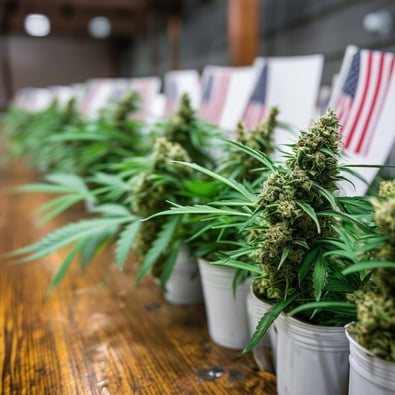At a recent gathering in California’s Trilogy retirement community, Don Searles showed up with a special treat: homemade peanut brittle infused with marijuana. Hosted by 74-year-old Gayle Crawley, the party reflected a growing trend — more seniors are experimenting with cannabis than ever before. Between 2021 and 2023, cannabis use among Americans aged 65 and older increased by 46%, according to a study published in JAMA Internal Medicine.
This shift suggests that seniors are embracing marijuana for its potential to alleviate pain, insomnia, and other chronic conditions. With cannabis now legal for medical use in 40 states and recreational use in 24, the stigma that once deterred many seniors is fading quickly. Crawley believes marijuana offers “a good solution to a lot of medicinal issues” and says her peers at the retirement community are curious about how it might improve their quality of life.
Why Seniors Are Interested
Steven Clarke, another attendee at Crawley’s party, said he’s never smoked and prefers edibles. Like many seniors, he is drawn to cannabis for its reported effects on PTSD, pain, relaxation, and even brain and heart disorders. For seniors who have spent decades managing chronic conditions, cannabis may feel like a natural alternative to prescription drugs.
However, health experts urge caution. Matt Springer, a professor at UC San Francisco, warns that THC — the psychoactive compound in marijuana — can still pose risks to seniors, regardless of how it’s consumed. Smoking may harm the cardiovascular system, and even edibles “are not without risk,” he told CBS News.
Balancing Risks and Benefits for Seniors
Research backs up Springer’s concerns. A June study analyzing data from 24 research projects found cannabis use is linked to a doubled risk of dying from cardiovascular disease, a 29% higher risk for acute coronary syndrome, and a 20% higher risk for stroke. For seniors who already face age-related health vulnerabilities, these risks can be especially significant.
Searles, who suffers from chronic pain after a motorcycle accident, said he isn’t surprised by the warnings. “What isn’t bad for you nowadays?” he joked. His sentiment reflects the balancing act many seniors face: weighing potential relief from pain and anxiety against possible long-term health consequences.
As cannabis use among seniors grows, experts emphasize the need for honest education, clear labeling, and ongoing research so seniors can make informed decisions about their health.





